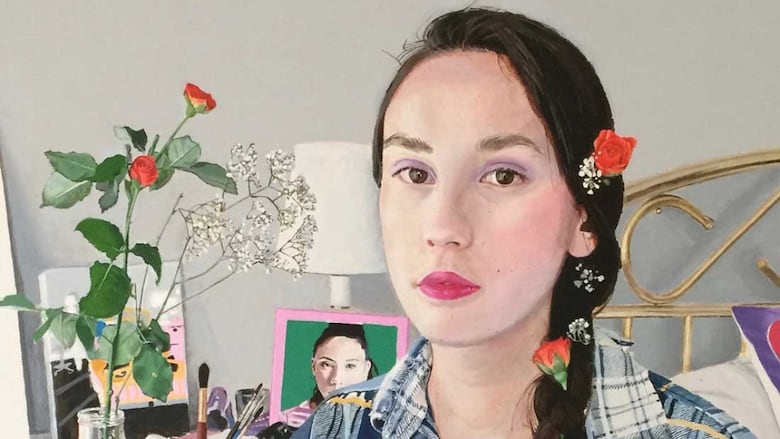Canada's national portraiture prize is looking to gain mass appeal for its 2025 edition
The Kingston Prize wants to find the kind of popularity of portrait prizes in the U.K., and Australia

Jason Donville was a fan of the Kingston Prize — Canada's national portraiture prize — long before he took over as the chair of its board.
The former Canadian naval officer-turned-hedge fund manager had always been interested in art. Figurative art in particular "just really got to me," he says. Initially, he was drawn to the prize as a way of scouting out new Canadian artists.
"As somebody who wanted to put figurative painting on the wall was how I originally got involved with it," he says. "I was using it as a way to say, 'How do I discover new painters that I've never heard of before?' And every two years, the list of 30 [nominees] was fabulous, and there are several paintings that have been on my walls for 20 years that came from me looking at the website of the Kingston Prize."
The Kingston Prize was founded in 2005 by Queen's University professor Julian Brown and his wife, Kaaren. The Kingston has been awarded every other year since then (except in 2021, when it was skipped due to COVID). It was inspired by the Archibald Prize, the national portraiture prize in Brown's native Australia, which has been running since 1921.
"They started up themselves from scratch and kind of begged, borrowed and whatever to get it going," Donville says of the Browns.

By 2023, though, the prize had begun to "run out of steam," says Donville, as the Browns and the rest of their cohort aged. He asked what he could do to help. "And before you know it, I became the chairman of the Kingston Prize." His goal as chairman, he says, is to make the prize a bigger deal in the Canadian consciousness. The Kingston Prize may be well-known in art circles, but in Australia, the Archibald has crossover appeal to people who aren't necessarily art aficionados. The Kingston Prize has just over 1,300 followers on Instagram, the Archibald has 11,700. Donville says there's no reason the Kingston Prize couldn't have the same mass appeal.
"The general public tends to really love [portrait prizes] because it's faces," he says. "It's the faces of a nation."
In March, the prize released its first-ever book, a 20-year retrospective, as part of that effort to get in front of more people. One of the artists featured was 2023's winner, Shaun Downey. Downey is familiar with the world of portrait awards. In 2010, he was accepted into the United Kingdom's national portrait award — then called the BP Portrait Award — where his work was hung in the National Portrait Gallery in London.
"They put my work on posters in the subway," he says. "It was on a huge banner on the front of the National Portrait Gallery.... And I really got my career sort of kicked into high gear. So I knew the possibility of that in Canada would be great."
He submitted work for the 2015, 2017 and 2019 Kingston Prizes — earning an honourable mention in 2017 — before his eventual win in 2023. He says his work isn't necessarily what people imagine when they think of portraits.
"I've often done portrait commissions where people say, 'I don't want it to be like a grandmother-over-the-fireplace-style portrait,'" he says. "So they've allowed me to add narrative elements, do something not quite so head and shoulders, sort of putting them more into a scene."

Jim Bravo was a 2023 honourable mention and is also featured in the book. In addition to being a portrait artist, he's also a muralist, and he says he likes to keep working at scale when doing portraits, too. Most of his works are life-sized or close to it. But he's also influenced by photojournalism, and views portraits as a way of not only capturing people's likenesses, but their lives. His 2023 submission showed his mother and grandmother working at home as seamstresses.
"She would go to work at, basically, a sweatshop in Chinatown during the day," he says. "Then, when she'd come home, she would be picking up orders … for her own little business. That really captures a moment in time back then for me in Toronto. That's my family, but [it] could have portrayed any number of my friends' parents that were doing the same thing.… We all came over as immigrants in the mid '70s and there's a lot of similar stories of that nature."
For Donville, beyond its artistic value, the Kingston Prize is yet another way of defining Canadian identity, showing us who we are as a people and talking about the things that affect our everyday lives.
"The country is continuously in evolution," he says. "And the mix of the population is in evolution. So the paintings are, in a sense, a reflection of us."
The Kingston Prize is taking submissions for entry until Sept. 1, 2025.

